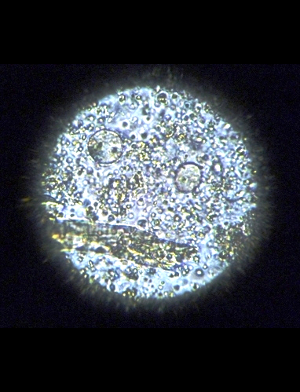Bug strain gets more resistant every day
 A research team tracking the evolution of a multi-drug resistant E. coli strain says it is just one step from becoming a very serious issue.
A research team tracking the evolution of a multi-drug resistant E. coli strain says it is just one step from becoming a very serious issue.
An international study led by The University of Queensland has found the strain is just one gene away from resistance to virtually all antibiotics.
UQ Australian Infectious Diseases Research Centre scientist Dr Nouri Ben Zakour said the emergence and rapid spread of E. coli ST131 meant urinary tract and bloodstream infections could become more common and difficult to treat.
“More than 150 million cases of urinary tract infection are reported globally every year, so an E. Coli resistant to all currently effective antibiotic treatments could be devastating to the community,” she said.
E. coli ST131 was not considered problematic five years ago, but Dr Ben Zakour says it is gathering momentum as a real risk.
“This study lets us understand in detail the evolution of a bacterial pathogen from obscurity to notoriety,” she said.
“It appears the E. coli ST131 arose from a single ancestor more than a decade ago.”
Researchers sequenced the DNA from strains of E.Coli ST131 from around the world, to identify difference between the variants.
“We needed to develop new software just to analyse all of the data,” Dr Ben Zakour said.
Researcher Dr Scott Beatson said it was vitally important to understand E. coli ST131, as there hardly any new anti-microbial drugs in the developmental pipeline.
“The gravity of this problem is such that E. coli ST131 are only one gene away from being resistant to all antibiotics that can be used to effectively treat urinary tract infections,” he said.
It is hoped that the study published this week in the Proceedings of the National Academy of Sciences will enable the development of tests to rapidly detect and help combat the spread of the bug.
Research group leaders Dr Beatson and Professor Mark Schembri have been awarded an additional four-year $793,000 grant in the latest NHMRC funding round, to continue their work in the area.







 Print
Print